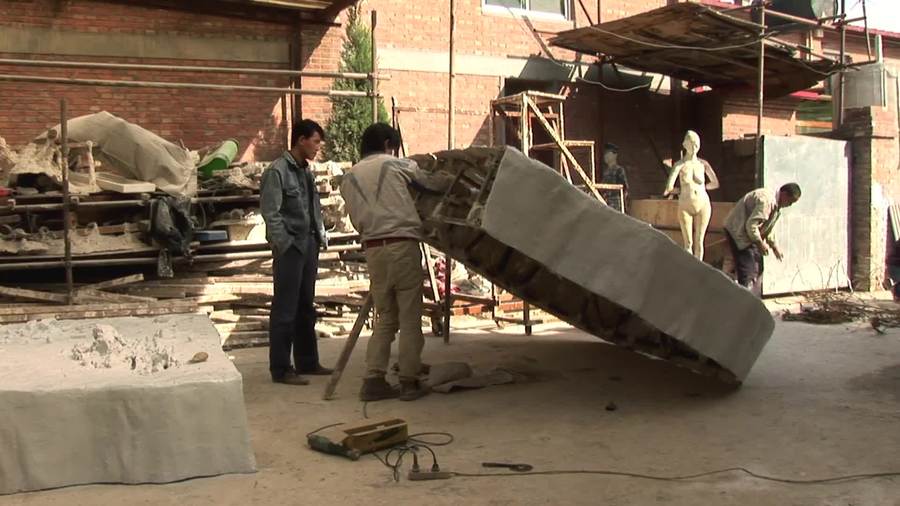When I moderated a panel on Chinese documentary filmmaking at the True/False Film Fest last March, I had the privilege of meeting Zhao Qi, a producer of several acclaimed Chinese documentaries. He offered some very wise words for both makers and viewers of movies about China. In essence, he said that China is such a vast nation, with so many people, covering so many geographic regions and cultures and with such a long, complicated history, that one can basically see whatever they want to see. And however much one manages to see, the complete picture is never fully in sight. These words are worth bearing in mind when looking at Chinese films, because they make one realize that the films are as much a reflection of the filmmaker’s orientation and point of view within the vastness of China as they are about China itself.
Thus it is to the credit of Vanessa Hope for making the short film China in Three Words which offers not one but three points of view, from three distinctly different figures in China’s contemporary cultural scene. The short is an abridged adaptation of the bestselling book China in Ten Words by the acclaimed writer Yu Hua, who also appears on camera to explicate some of the words he thinks are critical to understanding China. Hope also brings in two other voices as a way to open up Yu Hua’s ideas and connect them to other perspectives and situations. “I needed to use other people’s stories to illustrate his words,” Hope says in an interview I conducted with her, much of which serves as the narration for this video essay on her short film.
One of the voices she brings into the mix is that of Evan Osnos, a prominent journalist who covers China for the New Yorker. “I think he has a sensitivity, having lived [in China] for eight years.” Hope says. “He gets to know people in China as opposed to speaking in these generalizations or abstractions about them.” She also interviews the artist Cui Xiuwen, a leading figure in the Chinese contemporary art scene, with her provocative works depicting the experience of women in China.
Combined, this collection of voices and perspectives speak to Hope’s orientation in China, her networks of access and understanding of an incredibly complex society. An awareness of such orientation is critical to gaining a deeper understanding of the role of filmmakers in China (or anywhere for that matter)—how their own experience shapes ours in the act of making and viewing films.
Vanessa Hope’s feature documentary, All Eyes and Ears, plays Tribeca Film Festival beginning Monday. Connect with Hope’s Indiegogo campaign here.
Kevin B. Lee is Chief Video Essayist at Fandor. He has made over 250 video essays exploring film and media. His award-winning “Transformers: The Premake” was named one of the best documentaries of 2014 by Sight & Sound Magazine and played in several festivals including the Berlinale Film Festival Critics Week. Follow him on Twitter at @alsolikelife.






